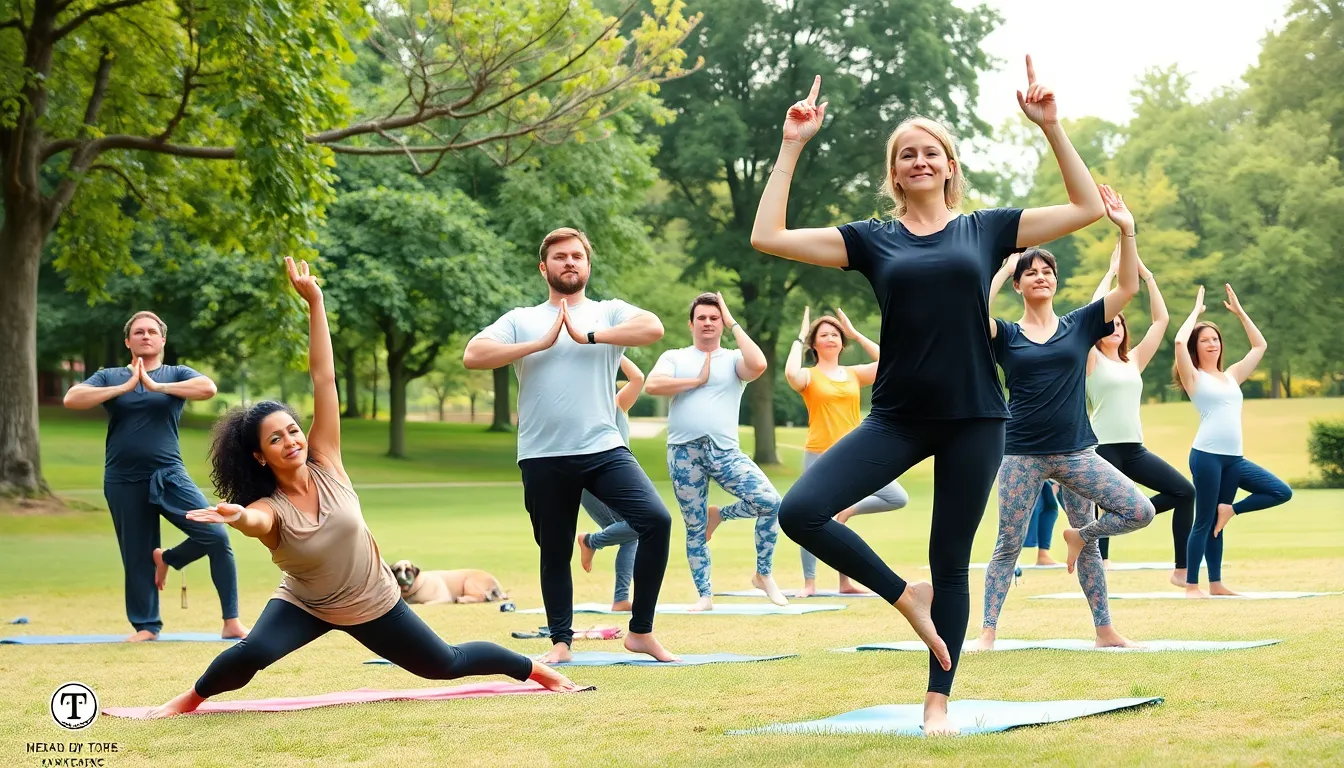In today’s fast-paced world, stress has become an unwelcome companion for many. Whether it’s deadlines at work, family responsibilities, or financial pressures, the weight of daily life can feel overwhelming. Finding effective stress relief methods is essential for maintaining mental and physical well-being.
Fortunately, there’s a wealth of strategies available to help individuals manage their stress levels. From mindfulness practices to physical activities, simple changes can make a significant difference. Understanding these techniques not only empowers people to take control of their stress but also enhances their overall quality of life.
Table of Contents
ToggleUnderstanding Stress Relief
Stress relief encompasses strategies and techniques aimed at reducing mental and physical tension. Recognizing its significance aids individuals in managing their everyday challenges effectively.
Definition of Stress
Stress refers to the body’s response to perceived threats or demands, resulting in a state of mental or emotional strain. Stress manifests through physical symptoms, such as headaches, fatigue, and muscle tension. It can arise from various sources, including work, relationships, and economic pressures. Stress triggers the release of hormones, like cortisol and adrenaline, which prepare the body for a “fight or flight” response.
Importance of Stress Relief
Stress relief plays a crucial role in maintaining overall well-being. Effective stress management leads to improved mental clarity, enhanced focus, and better physical health. Long-term stress without relief can result in serious health issues, including anxiety disorders, depression, and cardiovascular problems. Utilizing stress relief techniques such as meditation, exercise, and proper time management contributes to a balanced and healthier lifestyle. Recognizing the need for stress relief promotes resilience and fosters better coping mechanisms in daily life.
Techniques for Stress Relief

Effective techniques for stress relief include physical activities, mindfulness practices, and breathing exercises. Implementing these strategies can significantly enhance mental and physical well-being.
Physical Activities
Engaging in regular physical activities reduces stress and promotes overall health. Activities like jogging, swimming, and yoga boost endorphin levels, which act as natural mood lifters. Group sports or fitness classes also provide social interaction, further alleviating stress. Aim for at least 150 minutes of moderate aerobic activity weekly to reap maximum benefits.
Mindfulness Practices
Mindfulness practices encourage individuals to remain present, focusing on the current moment. Techniques such as meditation and guided imagery help cultivate awareness, reducing anxiety levels. Research indicates that just 10 minutes of daily mindfulness can improve emotional regulation and decrease stress. Incorporating mindfulness into daily routines, such as mindful eating or walking, enhances its effectiveness.
Breathing Exercises
Breathing exercises effectively calm the mind and body. Techniques like diaphragmatic breathing or the 4-7-8 method prompt relaxation by slowing the heart rate and lowering blood pressure. Practitioners can experience reduced tension and improved focus within minutes. Setting aside five to ten minutes each day for breathing exercises can foster a sense of peace and clarity in stressful situations.
Natural Remedies for Stress Relief
Natural remedies offer effective ways to manage stress and support emotional well-being. Two popular options are herbal supplements and aromatherapy.
Herbal Supplements
Herbal supplements can alleviate stress symptoms and promote relaxation. Common options include:
- Ashwagandha: This adaptogenic herb lowers cortisol levels, helping the body manage stress more effectively.
- Chamomile: Known for its calming properties, chamomile tea can reduce anxiety and promote better sleep.
- Lavender: Often used in oil or tea form, lavender can decrease stress and enhance mood.
- Rhodiola Rosea: This herb improves resilience to stress and enhances energy levels.
- Passionflower: Utilized for its calming effects, passionflower can reduce symptoms of anxiety and improve sleep quality.
Dosages vary, so consulting with a healthcare provider ensures safe and effective use.
Aromatherapy
Aromatherapy employs essential oils to create a calming environment and soothe stress. Popular oils include:
- Lavender: Its soothing scent promotes relaxation and can improve sleep quality.
- Bergamot: The uplifting aroma of bergamot reduces feelings of anxiety and enhances mood.
- Ylang Ylang: This sweet-smelling oil lowers blood pressure and alleviates stress.
- Sandalwood: Used for grounding, sandalwood is known to reduce stress and anxiety levels.
- Frankincense: This oil helps calm the mind and deepen meditation practices.
Using a diffuser or adding oils to bathwater amplifies their stress-relieving effects.
The Role of Lifestyle in Stress Management
Lifestyle choices play a significant role in managing stress effectively. Adopting healthy habits can enhance resilience and promote overall well-being.
Balanced Diet
Balanced diets support mental clarity and physical health, directly influencing stress levels. Consuming a variety of fruits, vegetables, whole grains, lean proteins, and healthy fats provides essential nutrients that help the body cope with stress. For example, omega-3 fatty acids found in fish and flaxseeds can reduce anxiety, while antioxidants in berries help combat oxidative stress. Hydration also matters; drinking enough water can prevent fatigue and irritability. Maintaining regular meal times stabilizes blood sugar levels, preventing mood swings and enhancing stress management.
Sleep Hygiene
Good sleep hygiene contributes to better stress management. Quality sleep helps restore the body and mind, enhancing cognitive function and emotional regulation. Creating a bedtime routine, such as consistent sleep and wake times, limits screen exposure, and relaxing activities, enhances sleep quality. Aiming for seven to nine hours of uninterrupted sleep can significantly improve mood and resilience to stress. Additionally, sleep environments should be cool, dark, and quiet, promoting deeper, more restorative sleep.
Finding effective stress relief methods is essential for navigating the challenges of modern life. By incorporating physical activities mindfulness practices and natural remedies into daily routines individuals can significantly enhance their well-being. Embracing healthy lifestyle choices like balanced nutrition and good sleep hygiene further strengthens resilience against stress.
Making time for self-care is not just a luxury but a necessity for maintaining mental clarity and emotional balance. Through consistent effort and the right techniques anyone can cultivate a more peaceful and fulfilling life. Prioritizing stress relief ultimately leads to a healthier mind and body empowering individuals to thrive in their personal and professional endeavors.









